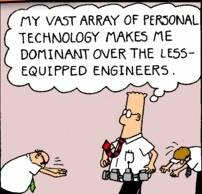December 10, 2015
Australia needs to do more to tackle the problems of mental health at work 0
 One in five Australians suffer from a mental health disorder and employers need to do more to tackle the related issues. That is the central claim made in a new OECD report called Mental Health and Work: Australia. The study claims that mental health issues cost the Australian economy AUD 28.6 billion per year, equivalent to 2.2 percent of GDP. Adding indirect costs, such as productivity loss or sickness absence, nearly doubles that amount. The report is the ninth in a series of reports looking at how education, health, social and labour market policy challenges identified in a 2012 report called Sick on the Job? Myths and Realities about Mental Health and Work are being tackled in OECD countries. The report suggest that while Australia’s recent mental health reform is an important and helpful development, the country ‘needs to do more to help people with mild to moderate mental health issues at and into work’.
One in five Australians suffer from a mental health disorder and employers need to do more to tackle the related issues. That is the central claim made in a new OECD report called Mental Health and Work: Australia. The study claims that mental health issues cost the Australian economy AUD 28.6 billion per year, equivalent to 2.2 percent of GDP. Adding indirect costs, such as productivity loss or sickness absence, nearly doubles that amount. The report is the ninth in a series of reports looking at how education, health, social and labour market policy challenges identified in a 2012 report called Sick on the Job? Myths and Realities about Mental Health and Work are being tackled in OECD countries. The report suggest that while Australia’s recent mental health reform is an important and helpful development, the country ‘needs to do more to help people with mild to moderate mental health issues at and into work’.















 The allure of London for Generation Y appears to be fading, according to
The allure of London for Generation Y appears to be fading, according to 

















October 12, 2015
How workplace design is more closely reflecting how we actually work 0
by Adrian Campbell • Comment, Flexible working, Workplace design
(more…)